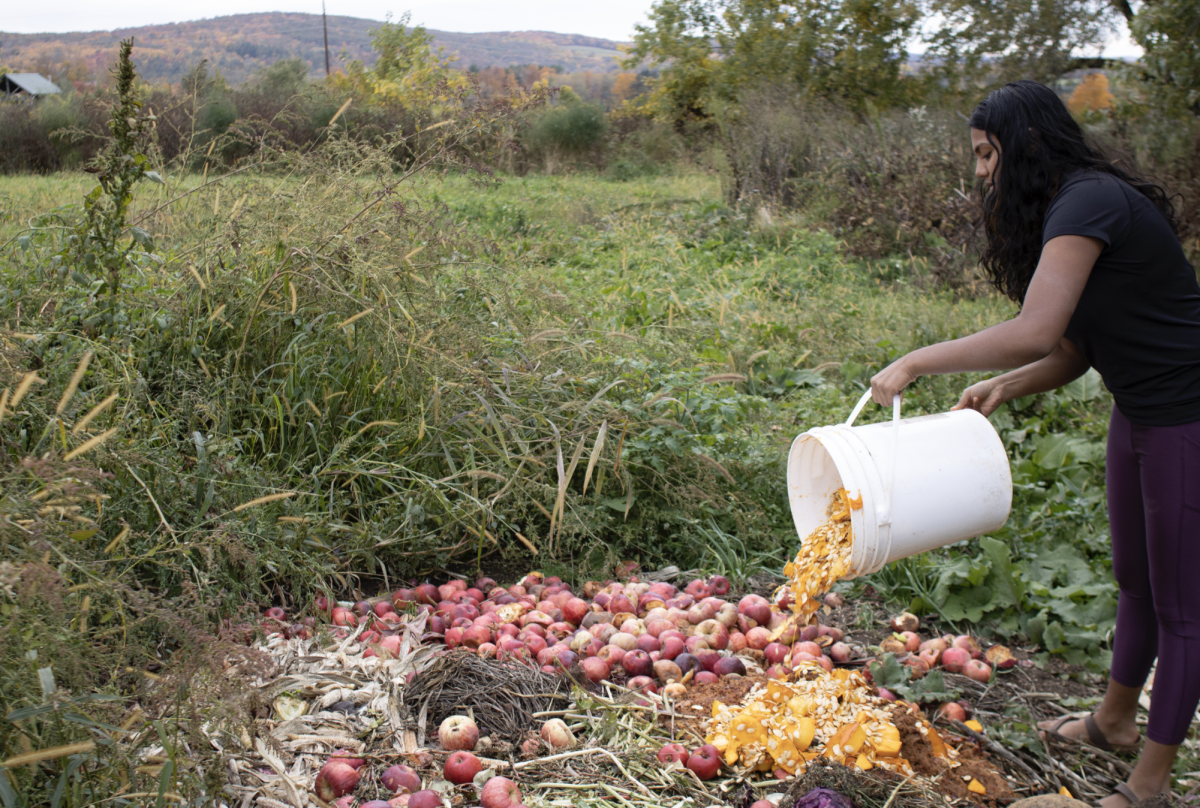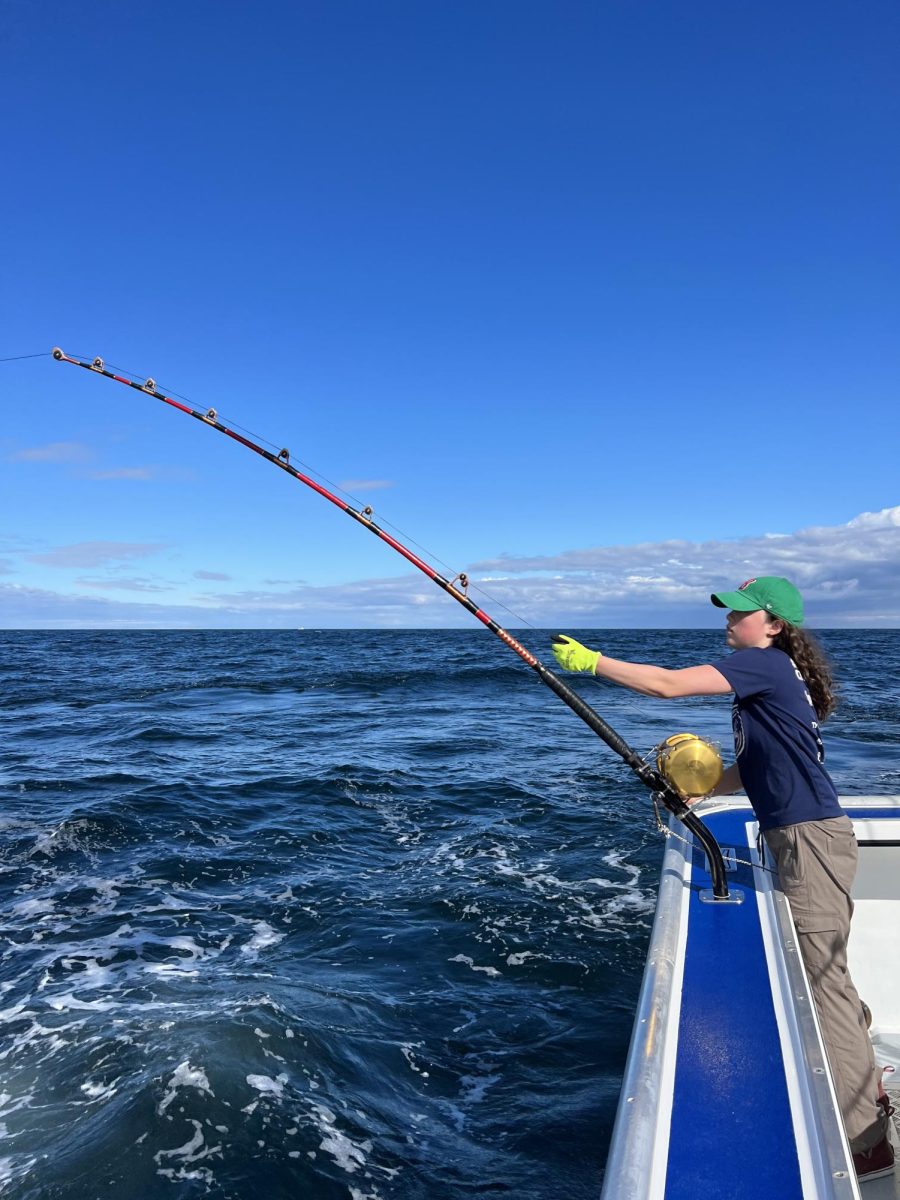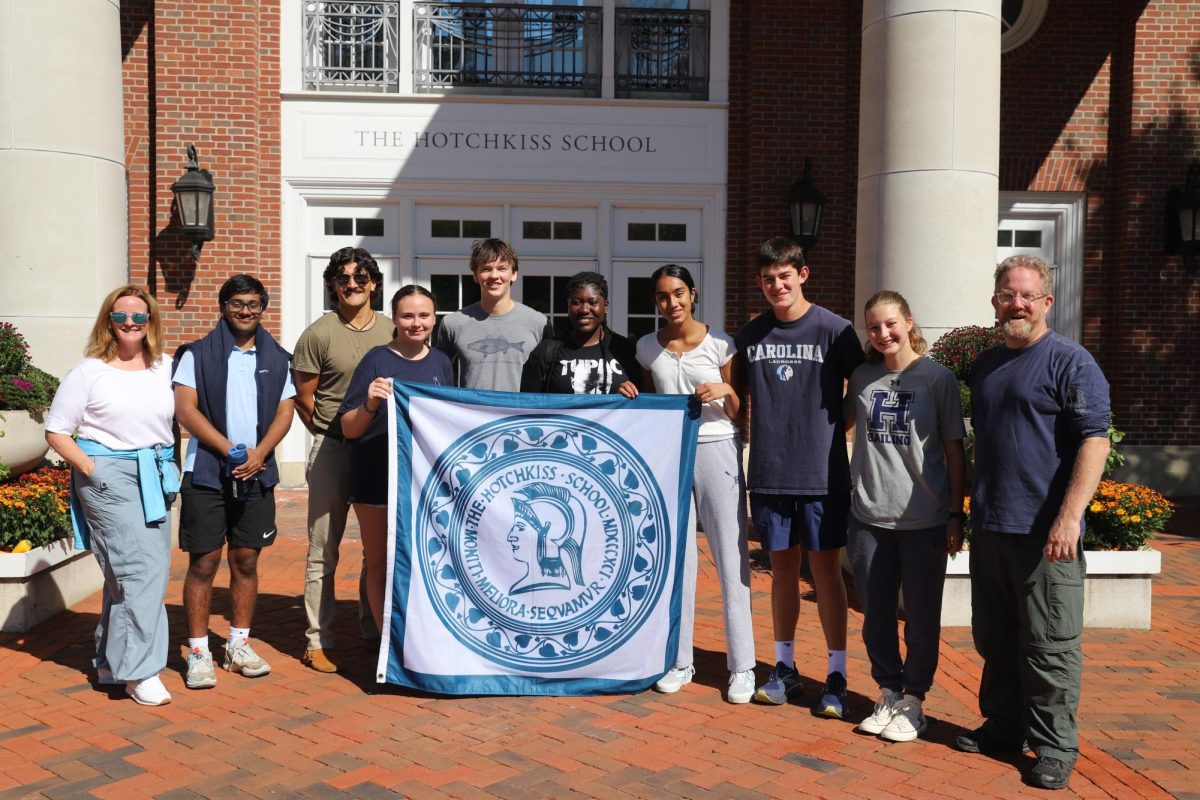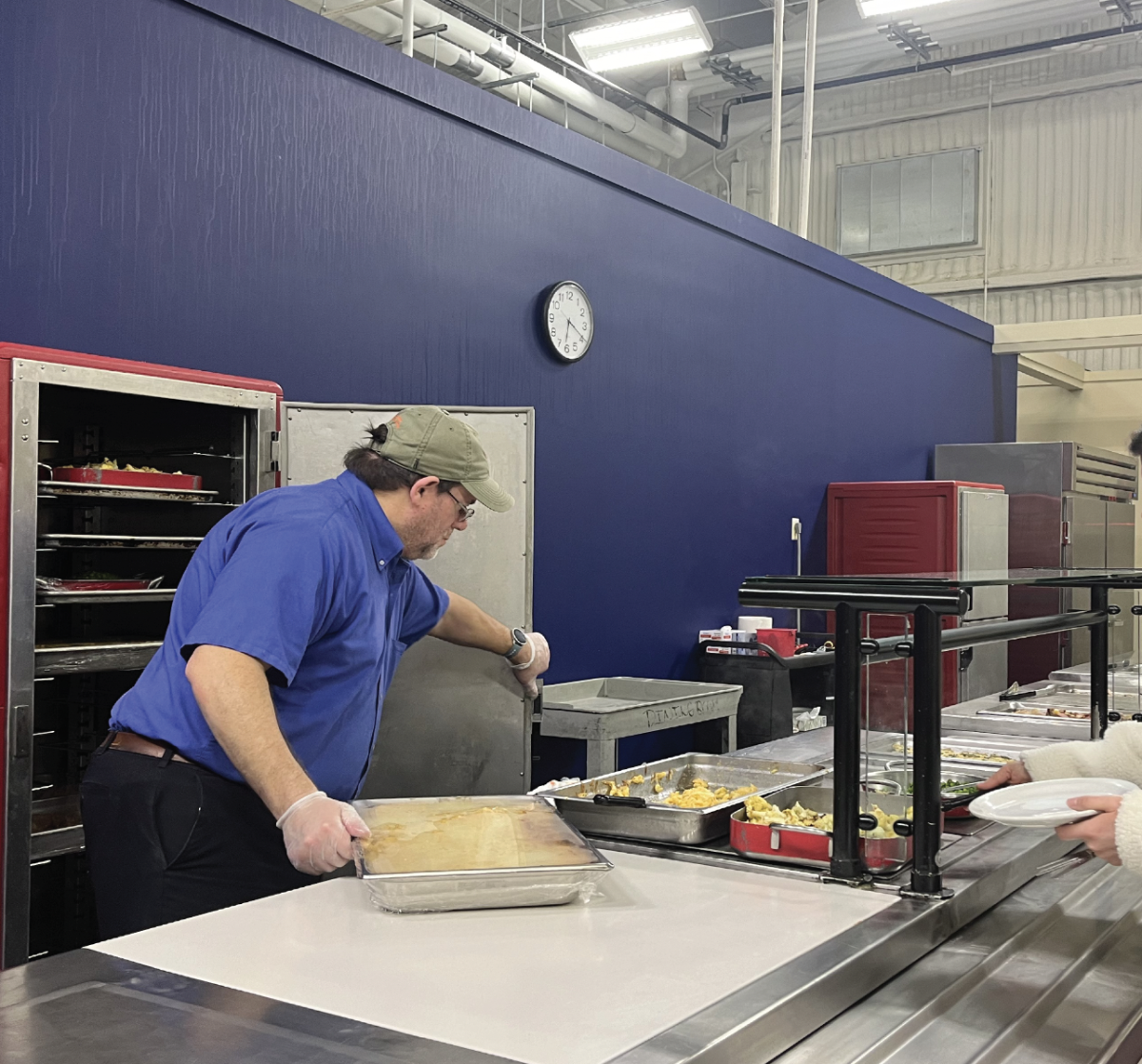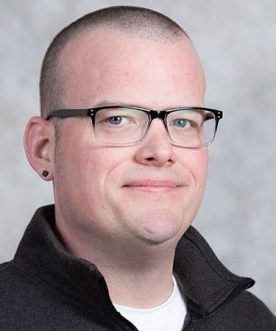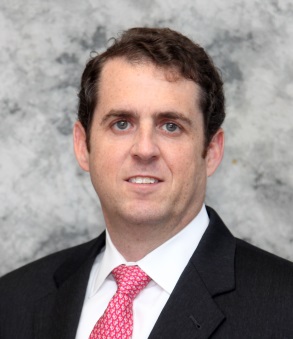From Fairfield Farm to faculty programs, composting initiatives are taking root across campus.
Composting is a procedure in which plants, food waste, and other organic material are decomposed and used as plant fertilizer or to improve biological properties of soil in general. It is often promoted as a means to reuse waste, limit the release of greenhouse gasses, and contribute to the overall preservation of the environment. According to the Environmental Protection Agency (EPA), only 4 percent of all food produced is composted.
Students and faculty are participating in efforts to expand composting at the school. Before the pandemic, all food waste produced in the dining hall was composted; however, during Covid, this process was halted as the company that previously processed the food waste no longer collects it. Mr. Blake, instructor in philosophy and religion and avid supporter of composting, said, “When we first moved to Hotchkiss, my family would bring our compost down to the Dining Hall, because they had food waste bins that were professionally collected.” In place of this service, which has not yet resumed, community volunteers have established programs to reduce the school’s carbon footprint.
On the farm, members of Fairfield Farm Ecosystem and Adventure Team (FFEAT) maintain the compost piles as part of their co curricular volunteer work on the farm. Compost is represented by different types: namely, ‘greens,’ composed of veggie scraps, and ‘browns,’ composed of leaves and corn stalks. Ms. Bridget Lawrence-Meigs, farm manager, said, “We layer green material (sources of nitrogen) and brown material (sources of carbon) and turn it with the tractor every few months to aerate it. Over time, microbes and invertebrates break it down into a rich, dark soil amendment we call compost.” In the fall season, FFEAT members transport organic matter to the compost pile.
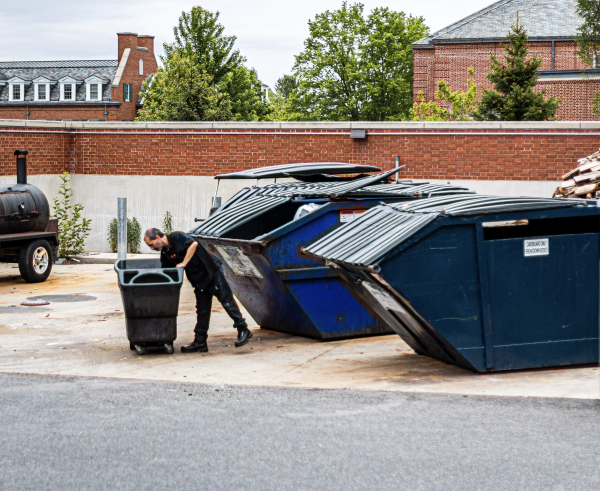
Ms. Amy Sidran, Fairfield Farm education coordinator, said, “It’s important that we compost because otherwise it would be waste that we would have to take somewhere else. In order to keep our waste production down, [we must use composting] as an ecosystem that recycles the material in a circular life cycle from start to finish.”
Maddie Lykouretzos ’23, co-captain of FFEAT, said, “It’s very important that the farm composts because it means we are creating less waste. I also think it’s a good example for the community about what they can do with food scraps.”
In addition, a pilot faculty composting program has been launched at Flinn, Redlich, Buehler, and Tinker dorms, which allows faculty members to compost items such as vegetables, tea, coffee, and other organic waste. Compost bins have been placed outside of these dorms, providing convenient access for faculty to dispose of food waste. Marcus Lam ’23 said, “ I know that only very few faculty members actively haul their food waste to the farm, so there’s a big chunk of the community who could be producing more useful compost.”
While strides have already been made in the school’s sustainability measures, there is further progress to be done. Lykouretzos said, “While I would like to see the Dining hall compost program brought back, I know that can be very difficult. So, I think just an overall awareness from students to know where the food comes from and know what it means when they waste it [would be an improvement].”
According to Marcus Lam ’23, while composting is an important initiative, it is not the ultimate solution to food waste. He said, “Ways students can be involved is just to minimize [their] own food waste. Don’t be ambitious when you go in that line; just grab a small plate of food and try everything first before you grab more. Composting is a great alternative, but if you want to reduce food waste before it even gets generated, this is where you do it: by refining your personal habits.” Mr. Blake said, “We should really take trying to lower our carbon footprint seriously. I subscribe to this ethical model: if everybody does what they think everybody should do, then everybody will be doing the right thing.”
Additional conversations about food waste, composting, and sustainability took place during Farm Week, from October 16 to 21.

